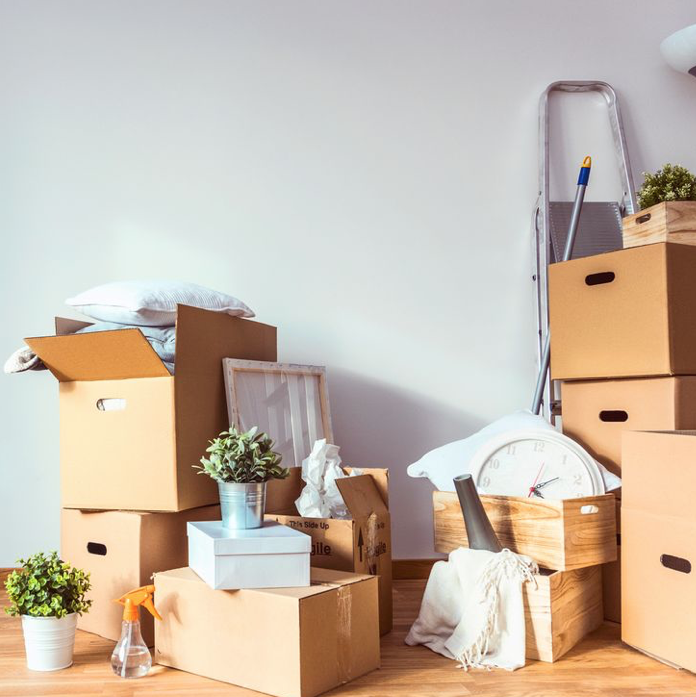How to move house in the most eco-friendly way
Enjoy your house move by being a virtuous mover who says no to plastic and uses cardboard in moderation

Buzzmove estimates that the average move in the UK creates over 17 kg of CO2 emissions, which means you could be increasing your carbon footprint by as much as keeping an incandescent light on continuously for nearly two months. But with a bit of green planning, your house move can be a smooth affair that doesn't generate tons of landfill waste.
Moving house can be stressful enough without having to factor in the environment, right? well, the good news is that lots of us don't share that view at all and put the environment centre-stage when we're planning a house move. Because who wants to generate unnecessary landfill waste, do lots of unnecessary journeys and waste money on packing stuff that's really not needed and will end up being that unecessary landfill waste?
It's surprising how much you can do to bring eco-friendliness to house moving - steps that aren't onerous.
Bye-bye bubble wrap
Wrap as much as you can in your clothes, towels, curtains and any fabric lengths you have lying around, as well as newspaper, and you'll find you hardly need to buy any bubblewrap. Plastic waste is a massive problem for the planet - according to the National History Museum, between 4.8 and 12.7 million tonnes of plastic find its way into the oceans each year. Buying less plastic is something we can all do and getting plastic out of our housemoves is easily achievable with a bit of creative thinking. And think of the cash saved!
Use alternative boxes
It can cost a fortune buying cardboard boxes for house moves. Yes cardboard is recyclable - but a lot of energy is needed to do - and yes, cardboard can be stored flat, but its structural integrity does lessen over time and loads of flattened boxes still take up a lot of space. So think about alternatives, such as crates, which you can hire or borrow, and drawers from chests of drawers. Your green waste boxes from the council - if you're taking them with you, why not use them for packing up household goods as they're really capacious.
Declutter early
When you're moving, it's best to declutter early so you don't end up taking things you don't really want. This translates to fewer packing materials needing to be bought and potentially a smaller vehicle needed to move your items. At the same time, decluttering gives you extra time to choose which items you can recycle instead of throwing out. What tends to happen when we move is that on moving day, we tend to sling things in the landfill bin because there's no time to recycle or consider how best to dispose of something. A bit of forward thinking means this needn't happen.
Storage
If your new house isn't ready immediately - for example you have decorators planned - it's best to have your house contents stored at a local storage facility. A storage facility will guarantee your items are safe while your new home is prepared. And builders/decorators prefer to work in houses/flats that are empty, not full of furniture.
Reduce your food waste
A recent study by VoucherCodes revealed that the average UK household throws away £356-worth of food each year. Or taken as a national, it means Britons are throwing away a whopping £9.7 billion-worth of food. Usually, when we move, we tend to clear out the fridge by putting what's in it into the bin. Which means we may well be throwing out perfectly good food. So in the weeks before moving day, we shoudl think about reducing the amount of food we buy so we consume what's in our fridges and store cupboards. Altnernatively, put unwanted food in the green waste bin for the council to collect (many local authorities use food waste to make compost for their parks and green spaces), or offer things like unopened tins and jars to your local foodbank.
One van only
When looking for a vehicle, make sure you get a large enough van so you need to make only one trip, thereby reducing your carbon footprint. When it comes to carbon emissions, Buzzmove estimates that removals companies add up to 72 tonnes of air pollution every year. Also, choose a low emission EEV (Enhanced Environmentally friendly standard Vehicle).